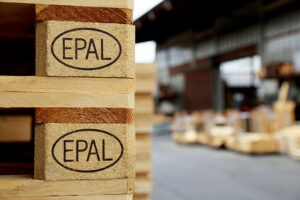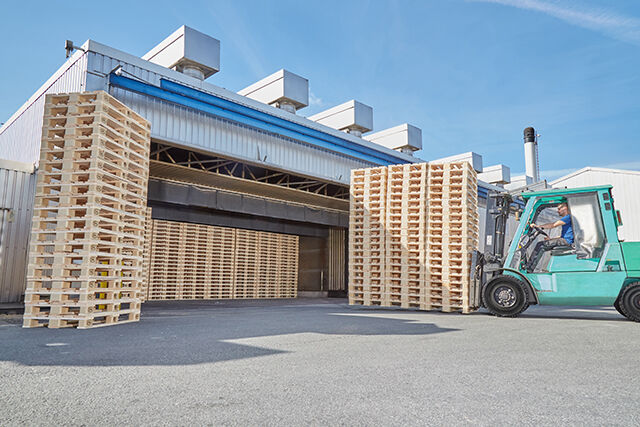EPAL UK & Ireland says sales of new EPAL pallets increased during 2020, despite the challenges of the pandemic.

The organisation, which oversees EPAL open pallet pool in the UK and Ireland region, says while sales decreased significantly in the months immediately following the UK lockdown in March, they increased by 1 per cent overall across the year.
It reported an uplift of 13 per cent in sales during the third quarter of 2020, during the run up to Brexit. EPAL pallets are kiln-dried and repaired to ISPM15 specifications, so they meet the regulations on pallet movements between the UK and the EU, introduced on January 1, 2021.
Paul Davidson, Chairman of EPAL UK & Ireland, said: “While 2020 was clearly an extremely challenging year – with the pandemic and escalating wood prices both affecting the pallet sector – EPAL UK & Ireland’s result show underlying demand has remained strong, with production up over the year. The new ISPM15 requirement for all pallets crossing UK/EU borders is likely to have driven demand towards the conclusion of Brexit towards the end of 2020; however, we have seen a strong performance across the EPAL business worldwide.”

Administering some 500 million EPAL Euro pallets and 20 million box pallets, EPAL is the world’s largest open exchange pool.
EPAL’s European headquarters (European Pallet Association e.V.) has reported a further year of growth, with EPAL pallet production rising for a successive year, by 1.14 per cent to a total of 97.3 million pallets (up from 96.2m pallets in 2019).
The business reported that repairs were slightly down on the year, with an overall increase in new and repaired pallets combined of 0.5 per cent to 123.5 million pallets (2019: 123m pallets).
“This positive development is particularly remarkable in view of the economic slump resulting from the Covid-19 pandemic”, said Robert Holliger, President of EPAL. “The adverse effect on national and international supply chains was an unprecedented challenge for producers and users of EPAL Euro pallets, which we successfully tackled together.”
During the pandemic, the production and repair of pallets such as EPAL was established as ‘essential’ in many European countries, because of their key role in keeping fmcg and pharmaceutical supply chains moving. As such, EPAL licensees were permitted to operate and deliver throughout lockdown periods.
EPAL pallets have been used to deliver one of the main vaccines used in European programmes.
“For us, it’s a particular mark of confidence that many transports of Covid-19 vaccines are made on EPAL Euro pallets. EPAL Euro pallets meet the most stringent requirements for safety and reliability for load carriers, and especially in extremely cold temperatures, such as with the transport of vaccines”, comments Robert Holliger.

In other news, EPAL announced in March that Christian Kühnhold has left the position of CEO, after just over two years in the role. A company statement said: “Christian Kühnhold has effectively driven EPAL forward in strategic projects and helped to successfully develop the association further. His core issues have been digitalising the EPAL Euro pallet pool, ISPM 15 and cross border logistics as well as quality and safety with a clear focus on the users of load carriers. In addition, he strengthened and further developed EPAL presence in the new markets in Asia and in Ukraine, as well as in Turkey and Spain.”
EPAL will announce Kühnhold’s successor shortly.



